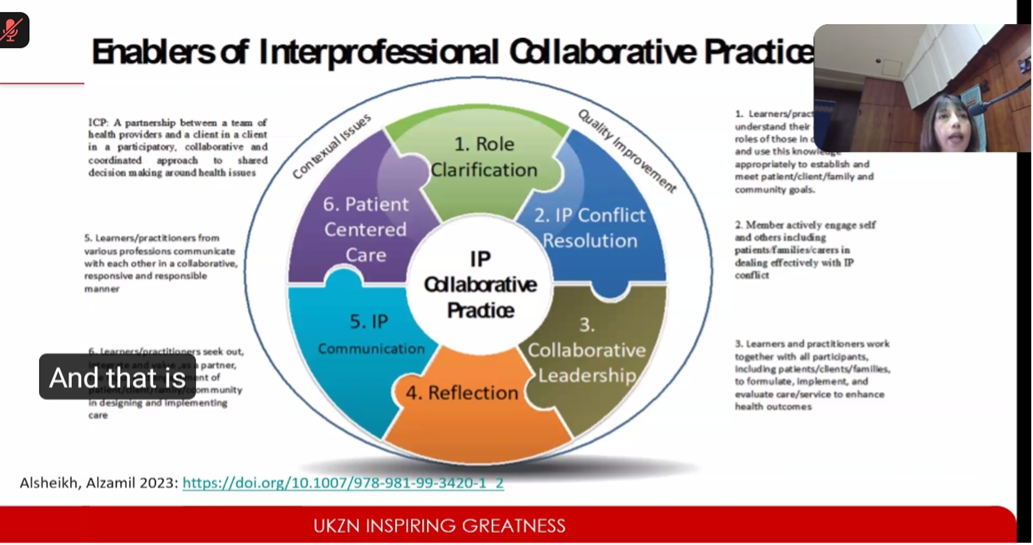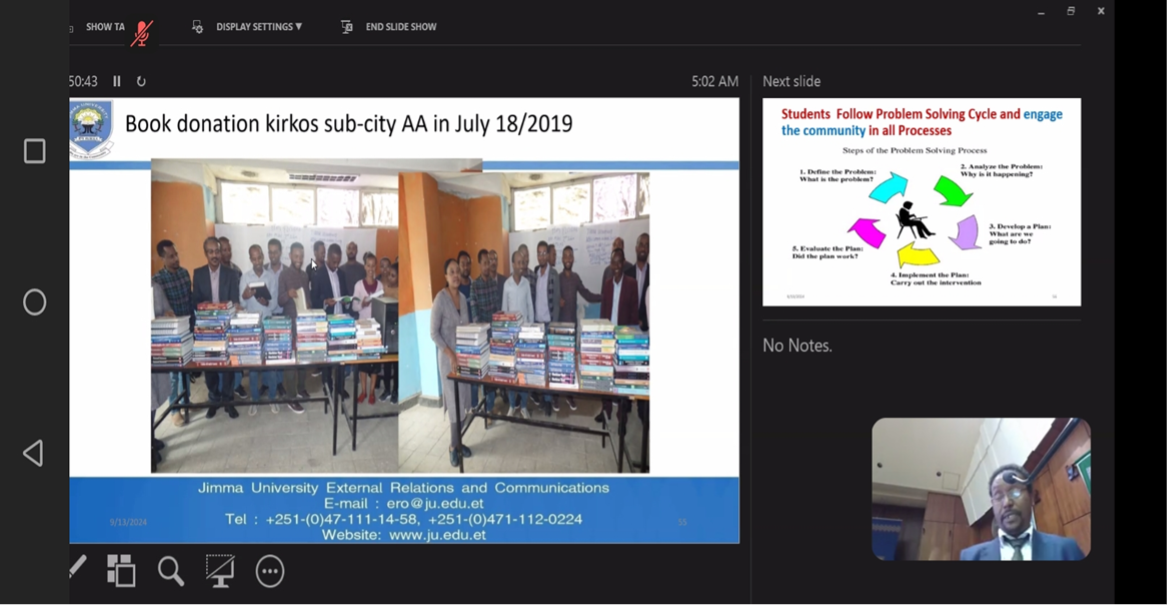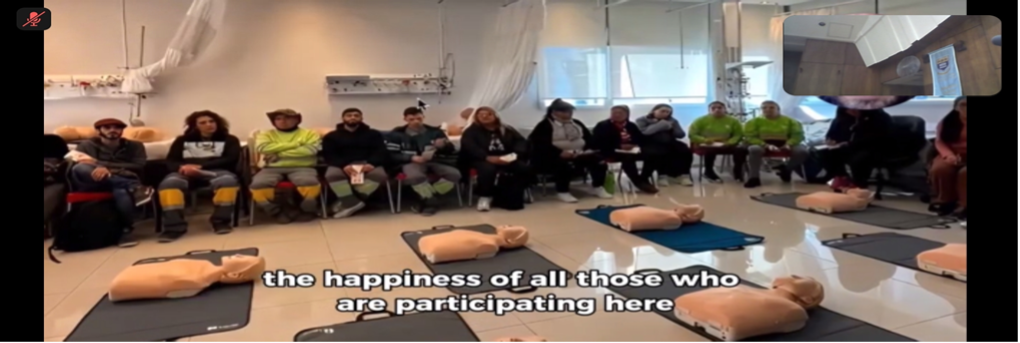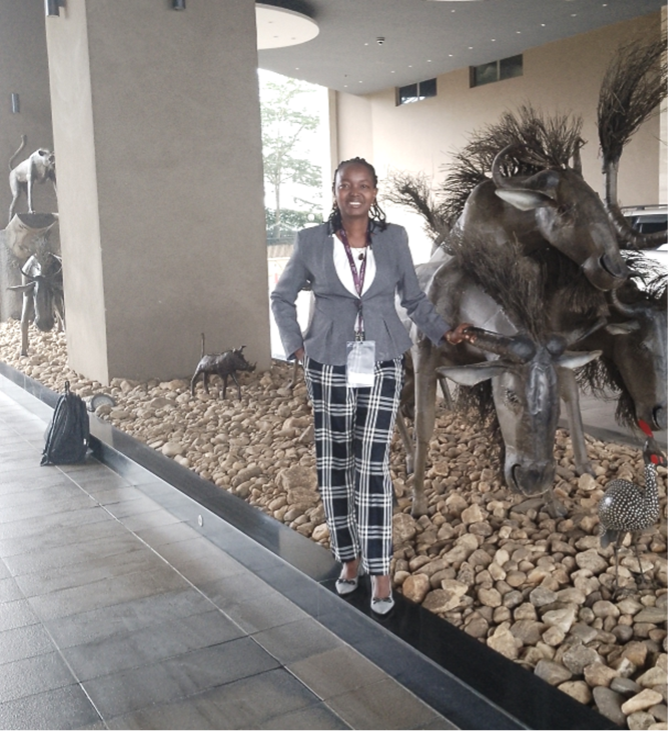Montegut Scholar at Ubuntu 2024 Conference
Virtual Presence at Ubuntu 2024 Conference
Virtual Presence at Ubuntu 2024 Conference
A Montegut Scholar’s Experience
By Dr Fatusin Bolatito Betty
WONCA Africa Montegut Scholar 2024
I feel really lucky to be selected as one of the recipients of this year’s Montegut Global Scholarship Fund awarded by the American Board of Family Medicine Foundation. This grant gave me the opportunity to attend virtually the WONCA rural conference held in conjunction with the organization Towards Unity For Health tagged Ubuntu 2024. Aside missing the beautiful scenery of Cape Town where the conference took place, I enjoyed every moment of the conference.
My interest in rural health arose while working in two rural facilities in Ekiti State, Nigeria and now in Federal Medical Centre Abeokuta (FMCA). Family Medicine Department of FMCA serves as the primary care unit of the facility and provides primary care services for patients from rural communities in Ogun State, Nigeria. My goals of attending the conference were to gain ideas on innovative ways to enhance health care services to these rural dwellers and to have more insights on how to improve the rural posting experience of our family medicine postgraduate trainees.
TUFH Pre-conference
I attended the TUFH pre-conference, which was a panel discussion on social accountability. The panelists were Sairu Philip, Firdouza Waggie, Jessiklecia Josinalva de Siqueira, and others. They emphasized the importance of Social Accountability in building equity for rural health. This was my first time learning what social accountability is all about. I got to know about the great work the organization is doing in partnership with health institutions across the globe. TUFH’s mission is to focus on the globe’s most vulnerable communities, who usually live insecurely on the fringes of society, in fear and without access to a reasonable level of essential services, including health services.
My Takeaways from the Keynote Presentations
Dr Meredith del Pilar-Labarda presented the Topic; Social Innovation in Health; Catalyst for connecting people, place, and policy towards community wellness. She cited examples of social innovations from the Philippines, including: the use of human-centered design approaches to deliver essential health services in three rural areas during the COVID-19 pandemic, application of human-centered design for local telephone systems in southern Luzon, Philippines, introduction of modules on Social Innovation into their medical curriculum, community engagement, self-monitoring strategy, and others. This was an eye-opener as I learned how the use of social innovation can enhance health care for rural dwellers.
Another keynote speaker, Dr Malin Fors, presented the topic Geographical Narcissism. This is a term she used to explain the rural-urban interaction she encountered while working in Norway. Rural health workers are often talked down to by their urban counterparts, who ask why they left the cities to practice in rural areas and when they will return. This can have a profound psychological effect on rural health workers, who may feel less valued than their urban colleagues.
The third keynote presentation was on promoting an inter-professional and collaborative approach to health service delivery by Prof Shenuka Singh from the University of KwaZulu Natal. She emphasized the need for continuing educational support for students and inter-professional education, which will give health professionals the opportunity to learn from one another and better understand the perspectives of others. I loved when she explained that a siloed approach to teaching, as currently practiced in most places, will produce an ill-prepared and ill-equipped medical graduate.

The last keynote speaker, Prof Tefera Lema Belachew, addressed the need for universities training health workers to adopt a paradigm shift towards redirecting their education to serve society and respond to the needs on the ground. He stressed the interrelatedness of global and local health and stated the need for community engagement in managing non-communicable diseases. He emphasized that community engagement is critical for achieving sustainable development, citing the Community Based Engagement (CBE) model currently practiced in Ethiopia as an example.

Other Inspiring Moments
The oration honored significant contributions to advancing health for all rural populations. Attendees from the Virgin Islands, Iberoamerica, and New Zealand shared inspiring stories of the incredible work being done by Family Physicians in these areas. They showed exceptional dedication despite the limitations posed by difficult terrains, lack of internet connection, and water shortages.

Virtual Networking
I had the opportunity to meet Tiffany Maycook, Khalid Muhammed, Nilufer Demiral, Yilmaz Adelina, and Rajan Ghimire. I plan to collaborate with Tiffany on research focusing on elderly care and lifestyle and with Khalid, a medical student from Sudan who is working on a topic related to climate change.
My Reflections and Action Points
Ubuntu 2024 was a great conference with excellent delivery of its theme: People, Place, Policy for Community Wellness. I hope to utilize all I learned to make a positive impact on my patients and younger colleagues in postgraduate Family Medicine training. My action points are:
- To adopt the concept of Geographical Narcissism to explore the mindset of young family physicians practicing in Nigeria towards those who have migrated to developed countries.
- To initiate a discussion on the need for inclusion of social accountability in the postgraduate family medicine curriculum among family physicians and trainees in my institution.
- To collaborate with Tiffany Maycook and Khalid Muhammad on research projects focusing on elderly care and climate change.
- To contact the Social Innovation for Health Initiative Hub in Nigeria for more information about the group’s activities.

Dr Bola Fatusin
Montegut Scholar Awardee